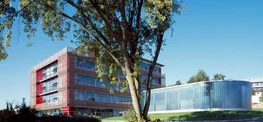for 2 years initially with the prospect of prolongation.
Research Areas: Mathematical Modeling, State-based and Agent-based Modeling, Game Theory, etc.
In the research group Applied Systems Biology a position for a postdoctoral researcher becomes available. The position is associated with aspects of the Image-based Systems Biology approach. This modern computational approach comprises the automated analysis of microscopy and/or spectroscopy data based on state-of-the-art methods from machine learning as well as the computer simulation of mathematical models using advanced modeling approaches. We are seeking highly motivated candidates that are interested to work on mathematical modeling and computer simulations in experiment-driven interdisciplinary studies.
Candidate´s profile:
Doctoral degree in physics, computer science, bioinformatics or a related discipline
Strong interest in biological systems and an educational background in biology are preferred
Experience in mathematical modeling and computer simulations
Very good programming skills in Python and/or C/C++
Ability to perform team-oriented as well as independent work
Good communication skills in English are a must
We offer:
The successful candidate will be hosted in the research group Applied Systems Biology of Prof. Dr. Marc Thilo Figge. The Leibniz-HKI is embedded in the outstanding scientific environment of the Beutenberg Campus providing state-of-the-art research facilities and a highly integrative network of life science groups. We offer a multifaceted scientific project with excellent technical facilities, a place in a dynamic, committed team, as well as strong scientific collaborations.
Salary is paid according to German TV-L (salary agreement for public service employees). As an equal opportunity employer, the Leibniz-HKI is committed to increasing the percentage of female scientists and therefore especially encourages them to apply.
For further information:
Prof. Dr. Marc Thilo Figge | +49 3641 532 1416 | career@leibniz-hki.de
Applications:
Complete applications in English should include a cover letter, a CV containing a complete list of publications, a brief statement of research experiences, the addresses of two possible referees, and should be submitted via the Leibniz-HKI online application system. The deadline for the advertisement is November 14, 2021, but applications will be reviewed on a rolling basis.






